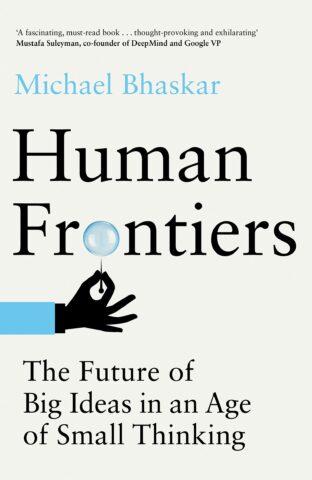The demise of big ideas?
We’re living in strange times. New technologies and revolutionary innovations such as advances in medicine enthrall the media. The world is abuzz with the all the opportunities that innovative ideas should open up. And yet big ideas that really change our lives are increasingly scarce, slow to emerge and – let’s be honest – less and less revolutionary. Is this stagnation irreversible?
Jonathan Huebner, a physicist, futurologist and specialist in the history of innovation, calculated that humanity’s productivity in terms of big revolutionary ideas has been in steady decline since … 1873. It’s a realization that calls for humility on our part. But it also prompts us to try to understand what threw a wrench in our ability to imagine a better future. The first step is to get rid of our preconceived ideas about ideas.

Human Frontiers: The Future of Big Ideas in an Age of Small Thinking, by Michael Bhaskar, (The Bridge Street Press, 2021).
Preconceived idea no. 1: All ideas are equal (false)
Type “ideas” into a search engine. You’ll get 2.3 billion results, which is three times less than for “love,” but six times more than “God,” for example. This just goes to show that humanity thinks that the word “idea,” this concept, carries weight. But what ideas are we talking about? Not the ideas that spring up when you’re brainstorming in a business meeting: It’s not about finding the way to raise a Tier 1 ratio by a single point or the best teaser for a media campaign.
No, the ideas that interest us here are those that can change your life profoundly, ideas that have transformed the course of our history: taming fire, mechanizing textile manufacturing, using weakened viruses to safeguard us from deadly diseases, enabling long-distance communication, making machines fly, creating a theory about the link between personal interest and the common good.
Each of these big ideas in its own way has led to a paradigm shift, creating shock waves that stand the test of time, and sparking fresh ideas in turn that open up new avenues and help new landscapes take shape in all areas of human activity.
1 Azoulay, Pierre, and Li, Danielle (2020), ‘Scientific Grant Funding’, NBER Working Paper
© Copyright Business Digest - All rights reserved



